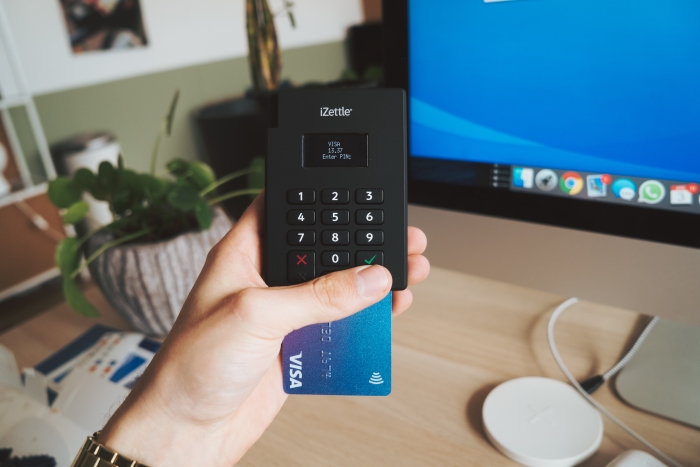A tip today from our business credit experts:
5 surprising ways you might be wrecking your business credit.
On the surface, credit scores are easy.
You take a particular action, and your score changes to reflect it. However, the kinds of actions that cause positive changes versus negative changes are not so intuitive.
You can do something you assume is harmless and even beneficial to your credit, only to see your score take a hit. But you are in luck. We tried to find out which small mistakes can have a large effect on your credit.
Maxing Out Your Credit Cards Each Month
Let’s say you are paying bills early each month and never miss a payment, but you cannot help but rack up balances that continue growing each month. This can be a big issue for your credit since the amounts you owe in relation to your credit limits, known as credit utilization, make up 30 percent of your FICO score.
What is the issue? According to myFICO.com, credit score formulas see borrowers who continuously max out their cards as a potential risk. That is why it is the best idea to keep low credit card balances and not overextend your credit use.
What is the best use rule? Credit reporting agency Experian says you should strive to keep your credit balances below 25-30 percent of your limits to achieve the good results. This means that, if your total credit limit across all your credit cards is $10,000, you should never owe more than $2,500-$3,000.
If you maintain balances higher than that in relation to your credit limits, you should completely expect your credit score to take a hit.

Closing Old Credit Card Accounts, You Don’t Use
Another factor that affects your credit is the average length of your credit history, which plays a 15 percent role in your score. This’s an essential point to know and understand since it can look like the best idea to close old accounts you do not use regularly.
Be aware that closing old accounts can decrease the amount of available credit you’ve, thus boosting your use in the procedure. Instead, consider keeping old credit card accounts open and put your cards somewhere for safekeeping.
That way, your accounts can add to the average length of your credit history and available credit, which can only help your credit score over the long haul.
Not Checking Your Credit Reports Each Year
Identity theft is fairly common these days, and statistics show that an array of hacking plans aimed at customers is on the rise. New account fraud that takes place when somebody opens an account with your private info grew to a $3.4-billion-dollar crime in 2018, up from $3 billion in 2017, according to a 2019 report from Javelin Plan.
Mobile phone account takeovers increased in 2018, with 679,000 instances reported. The perfect way to know if you are a victim of identity theft and fraud is to check your credit reports each year. If you fail to do so, you can simply be a victim of theft and not find out for months and even years.
Fortunately, you can check your credit reports from all 3 credit reporting agencies. Equifax, Experian, and TransUnion once per year using the site AnnualCreditReport.com.
Waiting for the Due Date to Make some Payment
One of the big factors that affect your credit is amounts owed, called your credit utilization ratio. This measures how much of your available credit you are using. It is recommended that you keep your credit card balance under 30% of your available credit to prevent your credit score from dropping. The issue?
Most credit card issuers report balances to the credit reporting agencies about the time the billing cycle closes, well before payments are typically made and credited.
That means if you rack up a huge balance during the month, it can look like you have got a high utilization ratio even if you pay the whole thing off on the due date. Fortunately, there is a simple way about this issue.
If you do use your credit card heavily one month, get online and pay down the balance before the close of the billing cycle so the balance that shows up on your credit report will be lower. You can call your credit card issuer to discover out what date balances are reported to the credit bureaus.

Paying Off a Loan
Hopefully, if you took out a loan, you’d so with the intent to pay it back. And by making all your payments on time, you have done wonders for your credit score. So, it would make sense that once you have reached the finish line and paid off your debt, your credit score would soar even high, right?
Not exactly. If it is an installment loan like a car loan or mortgage, and then there is a status change from active repayment to paid, your score does not know right away precisely what that means to your credit history.
Therefore, your credit score can temporarily dip because of that disruption. But do not worry, in a month or 2, your score will stabilize. Actually, it should eventually go up thanks to having another account in a better standing to your name.
Not Checking Your Report and Score
Sometimes a drop in your credit score can be because of an error on your credit report and even fraud.
If you are unaware of any issue, a small problem can turn into a huge headache over time. That is why it is essential to regularly check your report and score for anything out of the ordinary.
There are some areas you can get this info for free. 1st, you can visit annualcreditreport.com to get a free copy of your credit report from all 3 credit bureaus once a year, according to Griffin. If you have got a credit card with a major bank, it’ll probably allow you to see your FICO credit score for free as well.
You can visit sites like Credit Karma to see your score. They offer your Vantage Score rather than FICO, but it is yet worth checking out if you easily want to keep tabs on your overall credit health.
Do you need help improving your business credit?
Our team of business credit experts is ready to help you!
Give us a call today, we’re happy to help now!

